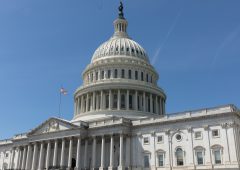California City Seeks Bitcoin ATMs Regulation
07.08.2024 22:00 1 min. read Alexander Stefanov
A city in California is seeking state and local regulations to govern Bitcoin ATMs in order to reduce fraud and increase transparency.
The City of Chico, California, is looking to a combination of state legislation and local ordinances to improve regulation of Bitcoin ATMs.
During a discussion held on August 7 by the Local Government Committee, Andy Pickett, Chief Administrative Officer of Butte County, discussed ongoing efforts to regulate Bitcoin ATMs.
Pickett highlighted recent state legislation aimed at curbing fraud related to Bitcoin ATMs.
An investigation conducted by California in October 2023 revealed that some crypto ATMs were charging premiums as high as 33%, with some machines allowing transactions worth up to $50,000. Consequently, a bill was passed to limit daily deposits to $1,000 and require disclosure of receipts and operator names for all crypto ATM transactions.
Pickett noted:
The significant impact will come from the bill, effective July 2025, which will regulate Bitcoin ATMs in a manner similar to banks.
He also stressed the need for local regulation of Bitcoin ATMs, mentioning that “each jurisdiction will need to enact its own ordinance to regulate these machines, and such ordinances will likely face legal challenges.”
-
1
U.S. State of Connecticut Blocks Crypto from Public Sector Operations
12.06.2025 16:00 1 min. read -
2
Federal Reserve Clears Path for Banks to Enter Crypto Market
24.06.2025 8:00 2 min. read -
3
Vietnam Charts a Clear Course for Digital Assets With New 2026 Law
16.06.2025 18:00 1 min. read -
4
GENIUS Act Clears Senate, Setting Stage for First U.S. Crypto Law
18.06.2025 12:00 1 min. read -
5
Coinbase and Set Gemini to Expand in EU Under MiCA Rules
17.06.2025 13:00 2 min. read
U.S. Supreme Court Backs IRS Access to Crypto Exchange Data
In a major development for cryptocurrency regulation and user privacy, the U.S. Supreme Court has declined to hear a challenge to the IRS’s authority to collect broad customer data from crypto exchanges.
Crypto Advocates Back Sen. Cynthia Lummis’ Push to Reform Digital Asset Tax Rules
As the U.S. Senate debates a sweeping reconciliation package dubbed the “Big, Beautiful Bill,” crypto industry advocates are rallying behind an amendment introduced by Senator Cynthia Lummis aimed at reforming outdated and burdensome tax rules for digital assets.
Germany’s Largest Banking Group Sparkassen to Offer Crypto Trading by 2026
In a major shift from its earlier stance, Sparkassen-Finanzgruppe — Germany’s largest banking group — is preparing to introduce cryptocurrency trading services for retail clients by the summer of 2026, according to a report from Bloomberg.
Kazakhstan to Establish State Crypto-Reserve Under Central Bank Oversight
Kazakhstan is taking a major step toward integrating digital assets into its national financial strategy, with plans to establish a state-managed crypto-reserve.
-
1
U.S. State of Connecticut Blocks Crypto from Public Sector Operations
12.06.2025 16:00 1 min. read -
2
Federal Reserve Clears Path for Banks to Enter Crypto Market
24.06.2025 8:00 2 min. read -
3
Vietnam Charts a Clear Course for Digital Assets With New 2026 Law
16.06.2025 18:00 1 min. read -
4
GENIUS Act Clears Senate, Setting Stage for First U.S. Crypto Law
18.06.2025 12:00 1 min. read -
5
Coinbase and Set Gemini to Expand in EU Under MiCA Rules
17.06.2025 13:00 2 min. read


